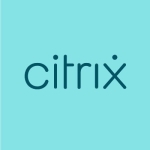Many of our customers are moving to open source-based technology and VMware is leading the virtualization space, but slowly customers are moving to open source and Red Hat is the leader in this particular space. I think customers feel more confident running Red Hat Virtualization than VMware. And if you talk about a lot of other features that VMware provides, Red Hat does that too. I mean, it's not only Red Hat, I would say, Oracle and Red Hat, both of them are providing good capabilities. I think customers like this.
In terms of cost, VMware is really expensive for many of the customers, so that is another reason why they want to switch to these technologies.
Most of the time we're engaged with the kind of discussion where we have to compare them with VMware. So when we do a direct comparison, then obviously VMware does better in terms of having Fault Tolerance and doing active disaster recovery and these kind of things. This is something that can be improved within Red Hat. That is one aspect.
But when you talk about the latest changes that are happening, I think both VMware and Red Hat are working on something like virtualization on top of the Kubernetes platform, so I think that will take it to altogether a different level. Because Red Hat is working on OpenShift Virtualization, and I think VMware has its own Tanzu, they both are competing well.
I think the future looks good for both of them. Red Hat may beat VMware in terms of when you compare it with OpenShift Virtualization. But looking at the present KVM, I don't know what things are going to look like.
In terms of what can be improved, I can't say right now because I don't know how much they are willing to do that or their roadmap looks like for this technology. In virtualization, like I mentioned, I think there are a lot of things that they are doing. In fact to be very frank, I'm not aware of the latest container-based virtualization that they're working on or what kind of features they have, so I'm not in the right position. I can't comment on that.
I have been using RHEV for at most a couple of years now.
I am not a system admin and not into the infrastructure. My role is mostly on solution architecture infrastructure so I don't do hands-on on these technologies, but I have my basic lab set up where I play around with them because my job is to provide solutions and advice for customers. That's how I am engaged with it.
On a scale of one to ten, I would give RHEV a nice eight.
I would definitely recommend for people to use Red Hat Virtualization. That is for sure.












We are using Redhat hypervisor for large organization - 50K plus. It is best virtualization solution we have used so far.